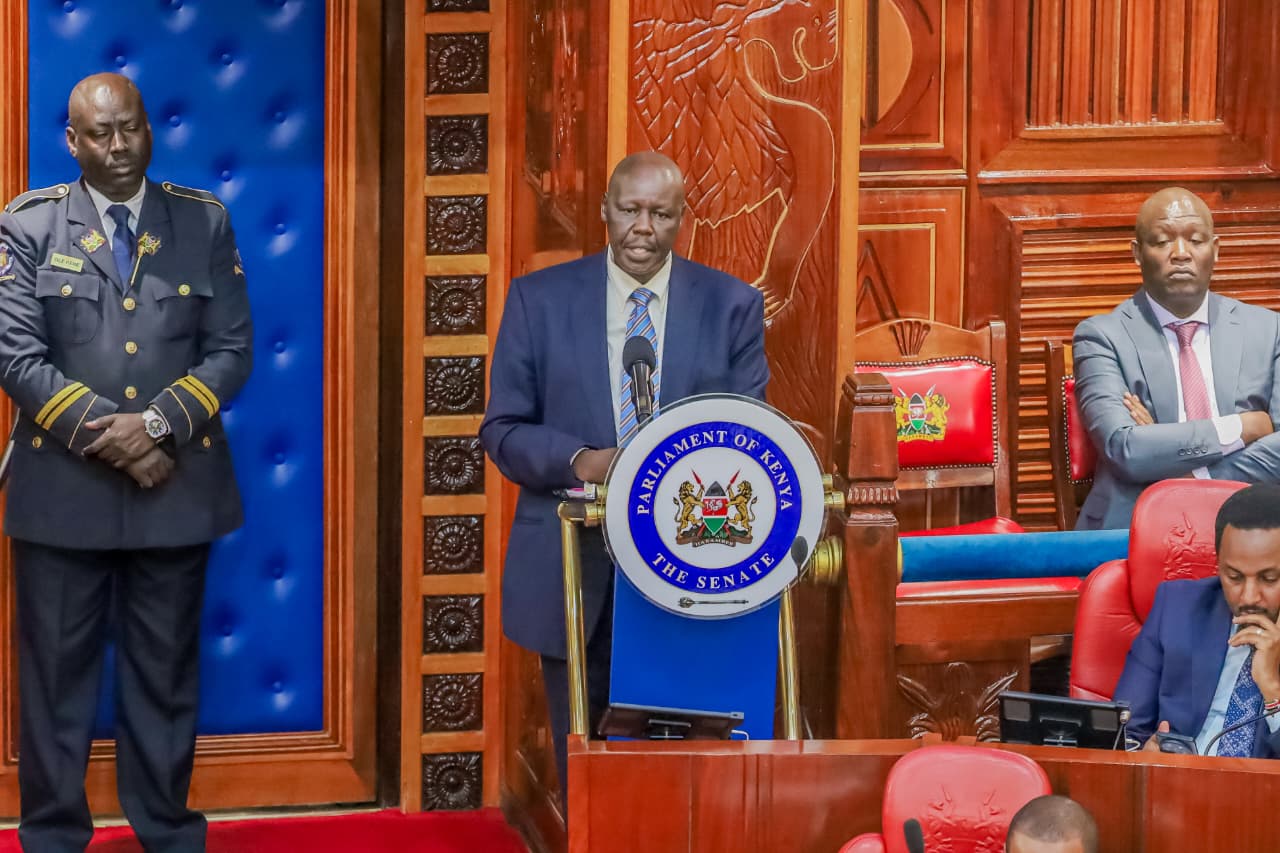
Electronic vote in Kericho impeachment revives Sonko-era drama in Senate » Capital News
NAIROBI, Kenya, Aug 27 — The Kericho County Assembly’s lead lawyer, Elisha Ongoya, on Wednesday defended the integrity of the electronic voting system used to impeach Governor Eric Mutai, dismissing claims of fraud and manipulation as “mere sensationalism.”
Appearing before the Senate on Wednesday, Ongoya argued that the platform produced verifiable audit logs and affidavit evidence, proving it was both accountable and secure.
He maintained that discrepancies cited by Mutai’s legal team arose from the process of copying audit logs for printing, not from double voting or system failures.
“Mr. Speaker, distinguished Senators, if an MCA says he logged into this system and voted, then he qualifies as a witness who must demonstrate how he did so before this House, and his credibility tested in cross-examination. Anything short of that is nothing more than sensationalism,” Ongoya said.
He cited a 2020 High Court ruling in the impeachment of former Nairobi Governor Mike Sonko, where similar claims of fraudulent logins were dismissed.
The court held that contradictory affidavits could not override an assembly’s official record without expert ICT evidence.
“In this case too, we have contradictory affidavits. Some MCAs now claim they did not vote, yet the official record clearly shows their participation. The Senate should not rely on mere allegations without expert proof,” he told Senators.
Audit logs
Ongoya walked the Senate through pages of audit logs, explaining that repeated entries presented by Mutai’s defence were the result of data duplication during extraction, not evidence of multiple votes.
“If the same second, minute, and hour appear twice, it is because of duplication during extraction—not because someone voted twice,” he clarified.
He further defended the use of mobile devices for voting, saying that “pressing a button” includes tapping a digital interface.
“As with smartphones and ATMs, one can press an electronic button without requiring a manual switch. To argue otherwise is to ignore the reality of modern technology,” he said, adding that MCAs had been supplied with laptops since September 2024 to ensure they were equipped for electronic voting.
The Assembly lawyer urged Senators to dismiss preliminary objections raised by Mutai’s team, insisting the issues were factual matters for a full trial.
“The evidence before you demonstrates a verifiable and accountable system. These matters are not preliminary objections but contentious issues of fact that belong to the trial stage. The only proper forum to test them is through witness testimony and cross-examination,” he said.
18 MCAs deny voting
Mutai’s lawyers, however, maintained that the system was insecure, pointing to the use of ID and payroll numbers as login credentials, the absence of IP address data in audit logs, and sworn affidavits from 18 MCAs claiming they never voted.
They argued the impeachment failed to meet the two-thirds constitutional threshold.
Lead counsel Katwa Kigen insisted the vote breached Standing Order 77, which requires abstentions to be recorded.
He tabled affidavits from 18 MCAs and alleged instances of impersonation and double voting, including by the mover of the impeachment motion.
“Mr. Speaker, our contention is that what was presented as a vote was in fact a paper exercise, riddled with irregularities and fraud,” Kigen said, adding that “if 18 members never voted, the maximum possible tally was 29—not 33.”
The governor’s defence also claimed audit trails showed multiple logins and even cited an audio recording allegedly capturing the mover of the motion admitting to voting on behalf of another MCA.
The Senate will now weigh the two sharply contrasting positions as it determines whether Mutai’s impeachment met the constitutional test or was fatally flawed.